How Playoff Baseball Is Different
What got you to the postseason might not work once you get there…
OK, this is embarrassing…
But yesterday I decided to write something about playoff baseball and how it’s different and Googled “do teams score fewer runs in the playoffs” (they do) and the AI robot that currently answers questions for Google and will eventually try to hunt down and kill John Connor suggests some articles I might want to read and one of them was called “How Playoff Baseball is Different.”
And the article is way better than what I was planning to write and I’d like to give credit to the author for doing such a terrific job which sounds incredibly generous of me except the author was…
Me.
I wrote it one year ago and apparently I was taking puppy-uppers back then because it was much more complete and had better stories and cool pictures and since I now appear to be suffering from Half-heimer’s I forgot I wrote it.
So here it is again because everything I said one year ago is still true, but let me emphasize that part about hitting home runs in the playoffs because this year I’ve already heard Analytics Advocates talk about how important they are and that a team that out-homers its opponent tends to win, which is kind of like saying the team that scores more runs tends to have an advantage.
No shit, Sherlock.
Now here’s the part where we disagree:
As is often the case, Analytics Advocates will take a piece of evidence and jump to the wrong conclusion and this is one of them: if homers are important and help you win, everyone should try to hit one.
But if a guy can’t hit homers during the regular season when the pitching’s not as good, what are the odds he’s going to hit one in the playoffs?
Let the guys who can hit homers swing away, but baseball is about odds and playing the right ones and if hits are hard to come by, a guy who didn’t hit many home runs in the regular season might want to play Small Ball and do something productive like bunt or move a runner or at the very least, cut down on his swing and get the ball in play because I’ve already seen way too many guys strikeout with a runner on third and less than two outs.
And Now A 2025 Playoff Moment That Made Me Laugh
It’s the bottom of the 8th inning and the Padres have Mason Miller on the mound and he’s already thrown a 104.5 MPH fastball and the Cubs manager, Craig Counsell decides to pinch hit Moises Ballesteros for Matt Shaw and Matt Shaw was probably thinking: “Thank God.”
And Moises Ballesteros was probably thinking: “Great, I get a pinch hit against a guy throwing 104 and none of us can see the damn ball because we started at 2:08 PM and we’re dealing with shadows…thanks, Coach!”
No surprise, Moises struck out.
Anyway…
The playoffs are different and here’s that article just in case you missed it a year ago and I hope your memory is as bad as mine because if I forgot I wrote it, maybe you forgot you read it and if you did read it maybe you forgot what was in it.
And Now—Once Again—How Playoff Baseball Is Different
After a 162-game season in which a single loss or win can seem insignificant, we’ve now reached the stretch of baseball where every game matters dramatically and if you’re willing to ignore your job and the needs of your highly-inconvenient family (I plan on doing both) you can watch four important baseball games in a single day.
But playoff baseball is different and today we’ll take a look at how it’s different and why what a team did to win during the regular season might backfire once it gets to the postseason.
You’ve Got To Win Right Now
Let’s say you’ve got a team and game plan for the regular season that you believe will win 95 games and put you in the playoffs. You don’t freak out just because you’re losing a single game; if you stick with your game plan and your game plan works, you’ll win 95 games, but still lose 67. In the middle of the regular season, one loss isn’t a disaster.
The playoffs are different because you might find yourself in a game you have to win right now this minute.
You can’t be patient and say we’ll get ‘em tomorrow, because there might not be a tomorrow. You can’t stick with a plan that will work in the long run because the long run is over: you’re now in a sprint.
You have to react to what’s happening in the present, but despite what seems like an obvious requirement, in recent years we’ve seen teams lose in the playoffs because they stuck to what worked in the regular season.
When Moneyball held the Oakland Athletics up as an example of how baseball should be played, a lot of baseball people pointed out that what the A’s were doing in the regular season got them into the playoffs, but didn’t work once they got there.
Billy Beane (the Real Life Brad Pitt) admitted: “My shit doesn’t work in the playoffs.”
And now that we’ve made the main point; let’s look at some specifics.
The Weaker Teams Are Eliminated
Former Kansas City Royals coach Rusty Kuntz (and he’s going to get mentioned a lot because he taught me a lot) once told me that the local media and fans considered an upcoming series against a first-place team a Big Series.
Rusty said it wasn’t.
When you play the best teams you just try not to get swept. After the first-place team left town, a last-place was coming to Kansas City and Rusty said now that’s a Big Series; you need to sweep them or at the very worst, win two-out-of-three.
You don’t build a winning record playing the best teams; you build it by consistently beating the crap out of bad ones.
If your offense is based on walks and home runs and taking advantage of mediocre pitching, once the weaker teams with their weaker pitching staffs get eliminated, walks and home runs might be hard to come by and what got you to the playoffs might not work once you get there.
Familiarity Breeds Better Pitching and Defense
On another occasion (we talked a lot) Rusty explained that the pitching and defense should be better in the third game of a 3-game series because you have a better idea of how a batter is swinging a bat and where he’s hitting the ball right now.
So a 7-game series provides even more information and if teams are reacting to what they’re seeing, the pitching and defense should get better as the series progresses.
Also…
More Scouts
During the regular season you scout all the teams you’ll face that summer which is a lot of teams, but in the playoffs the number of possible opponents is reduced and every time a team gets knocked out, the scouts who were watching that losing team can focus on a team still playing.
The fewer teams still playing, the more scouts watching them.
So now you’ve got way more eyes on a possible opponent and if one of those pairs of eyes spots something significant, it can be a huge advantage. More scouts means more and better information on an opponent.
More Days Off
Let’s say you’ve got a reliever and he can pitch two days in a row, then needs a day off, which is not uncommon.
If you use him the first two days of a regular season 3-game series, he wouldn’t be available for Game 3, but in a postseason 7-game series he could pitch Games 1 and 2, get a day off, pitch Games 3 and 4 and after skipping Game 5 and getting another day off, pitch Games 6 and 7.
If you played seven games in a row with no days off, the same pitcher could pitch Games 1 and 2, then Games 4 and 5 and then Game 7 and while pitching in five games instead of six might seem insignificant, having a shutdown reliever available for one more game might make a huge difference; remember, in the playoffs every game is a Big One.
Days off do the same thing for starters.
More days off means you can use fewer starters and minimize the exposure of the fifth (and maybe even the fourth) pitcher in your rotation. Which is one of the reasons playoff pitching gets better and here’s another.
Fewer Games Left to Play
During the regular season you don’t want to burn out a good pitcher by overusing him, so you pay attention to pitch counts and innings pitched and limit his exposure. But in the playoffs, with so few games left in a season, a manager might ask more from his best pitchers.
So with more days off and fewer games left to play, the best pitchers pitch more often and – at least theoretically – the pitching in the postseason gets better.
A theory that is supported by this story from FanGraphs that says for over two decades, runs in the postseason were reduced by 16%. (No idea why they only looked at two decades and at the current moment, don’t care, but it’s probably because nobody wanted to calculate the numbers for 120 years of baseball.)
https://blogs.fangraphs.com/a-quick-review-of-how-playoff-offense-has-worked/
Just in case you didn’t read the FanGraphs story and you probably didn’t:
Better pitching means fewer walks and more strikeouts and the fact that the Greedy Bastards That Run Baseball (patent pending) have added more playoff games to make more money means games are taking place later in the year in colder conditions which makes it harder to hit and if you don’t believe me, go outside in mid-January when it’s 6 below and have someone throw you a 96-MPH cutter that runs in on your hands.
(Call me first because I’d really like to come over and watch that.)
Anyway…
The FanGraphs story concluded that if the pitching was better and it was harder to string hits together, everybody should try to hit home runs which is no surprise because that’s the Analytics answer to everything. If you asked a Numbers Guy how to achieve Peace in The Middle East he’d probably say “swing for the fences” which, come to think of it, looks an awful lot like what Israel is currently doing.
And now we’re officially off track so let’s get back to baseball and the next subject is…
Small Ball and Contact
Former Manager of the Year Clint Hurdle, once said that in the postseason you have to play the kind of game you’re in – if it’s a blowout you need to score runs in bunches, if it’s a pitching duel you need to be able to manufacture a single run – and the teams that can adjust and play the kind of game they’re in that night have an advantage.
Asking guys who have a hard enough time hitting home runs in the regular season against what might be mediocre pitching to now hit home runs in the postseason against the best pitchers isn’t much of a game plan (kind of like planning for your retirement by buying lottery tickets) and it’s one of the reasons we see so many strikeouts.
Fortunately, there is another way to score postseason runs if you find yourself in one of those pitching duels.
After the 2015 World Series the always quotable Rusty Kuntz gave an interview in which he said the Royals had shown the value of getting the ball in play and if you remember that series, errors by the Mets were one of the keys to the Royals winning.
Teams have loaded up on home run hitters and shown a willingness to put bad defenders on the field as long as they hit enough bombs, so making contact and putting the ball in play exposes that weakness.
(And, man, in the 2025 playoffs we’ve seen some wretched defense.)
Also…
While it’s true better pitching makes it harder to string hits together there is another solution other than swinging out your ass and trying to hit home runs; you can score runs by moving runners with bunts and steals.
1. Single…
2. Steal second…
3. Sac bunt the runner to third…
4. Get the ball in play.
You just scored a run with one hit.
But those tactics have largely been abandoned and if you don’t work on them during the regular season the chances of them being well-executed in the postseason go way way down. Practicing bunting against a pitching machine or a 56-year-old coach throwing BP won’t get the job done; you’ve got to do it during games against guys throwing 97 with movement and do it often enough that you get good at it.
Nevertheless, every postseason some manager – who followed his front office instruction to ignore Small Ball tactics during the regular season – will get in a tight playoff game against good pitching, panic and then ask some guy who hasn’t got a bunt down since the War of 1812 to get one down in the playoffs. And because the guy hasn’t worked on it, the bunt will probably be a bad one and then all the Analytics Guys will say:
“See? Bunting is stupid.”
If you don’t work on it when you don’t need to, it won’t work when you do.
And Finally…Small Sample Sizes Matter More
If you like analytics you probably also like large sample sizes because looking at as many at-bats or innings pitched as possible smooths out the anomalies. A bench player can look like an All-Star for three games while over the same three games an All-Star can look like he should be sent back to the minors.
Here’s one of the places where players and coaches often disagree with the number-crunchers:
Overall numbers might be helpful if you’re looking to sign a player to a long-term contract, but if you’re trying to win a game right now, you want to think small: how’s the player playing right now?
Insisting on following the overall numbers is how the Tampa Bay Rays fucked up a World Series when pitcher Blake Snell was pulled early against the Dodgers because the overall numbers showed that Snell struggled third time through a lineup, which ignored the fact that Blake was pitching his ass off that night.
Which is (at least theoretically) why you have a manager in the dugout: he’s supposed to react to what he’s seeing in the present, but way too many teams insist the manager stick to a script prepared by the analytics department before the game ever started.
After the 2023 World Series, losing Diamondbacks manager, Torey Lovullo (who appeared to be managing according to a script and making some bad decisions because of it) had this to say about winning Rangers manager Bruce Bochy:
“The rest of us are using tablets and charts and Bruce is managing by the scoreboard. I really admire that.”
In other words, the Rangers had a managing advantage because Bochy was reacting to what he was seeing that night.
Today’s Lesson
Playoff baseball is different and most years the teams that win make adjustments and the teams that lose just keep doing what they did all season. And now that you know what to look for…
Go watch some ballgames.

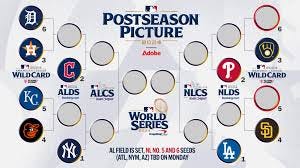
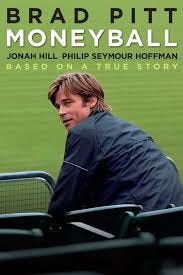

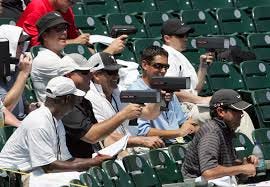

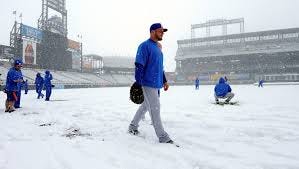
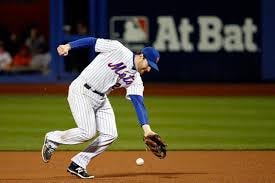
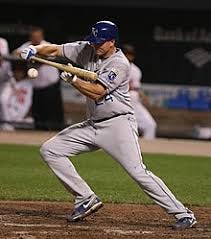
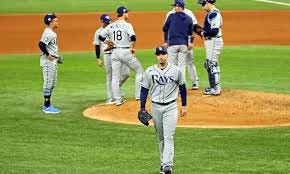

I'm glad to read it again! I keep in mind that bit about Bochy managing by the scoreboard, and thinking about managing and playing the game you've got NOW! Could apply to real life.
I had a dream last night not about baseball. In the dream I was using a bathroom on a school campus. It was a women's bathroom. But in the stall next to me was Trump. I waited until he was done, we got out of our stalls at the same time and I said to him, "You're an asshole."
And then I left.
And woke up. Laughing.
And glad the Yankees made the kinds of errors they did last night!
HOW could you forget you wrote this gem? Worried about you, Mr. J.
Love the Billy Boy Beane quote about his $#!t now working in October.
Reminds me of my all-time favorite quote about playoff baseball from the great Grant Brisbee of the Athletic: "The postseason is when the Baseball Gods drink and play at dice."